Brexit: Carwyn Jones plea to make safe EU funding for Wales
- Published
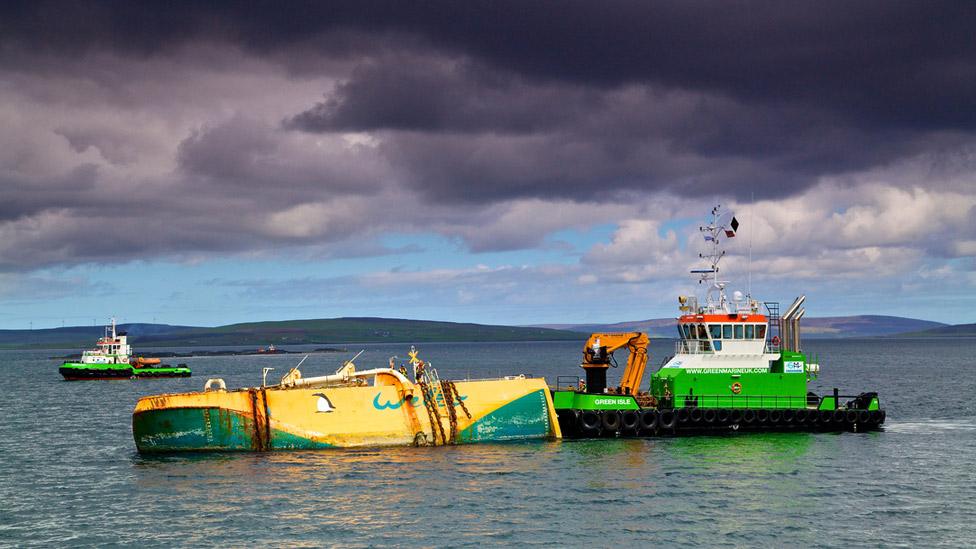
The Morlais tidal energy project off Anglesey is half way through its EU funding application
First Minister Carwyn Jones has written to the Prime Minister asking him to confirm that all the money that Wales gets from the European Union is safe.
He added that during the referendum campaign, the Leave side made cast iron promises that this money would continue to come to Wales in the event of a Brexit vote.
Wales has enjoyed one of the highest levels of EU funding in the UK.
In the current round to 2020, it involves £1.89bn.
As well as EU funding that has been available for all parts of the UK, Wales has had extra funding because of the weakness of its economy.
All of Wales has benefited from so-called structural funds to help create more jobs and prosperity and since 2000 west Wales and the Valleys has had the highest level of support, initially called Objective One.
This region is now into its third seven-year period of receiving that money.
It is too early to assess the impact of that latest money but we can see some examples of how £1.8bn was spent between 2007 and 2013.
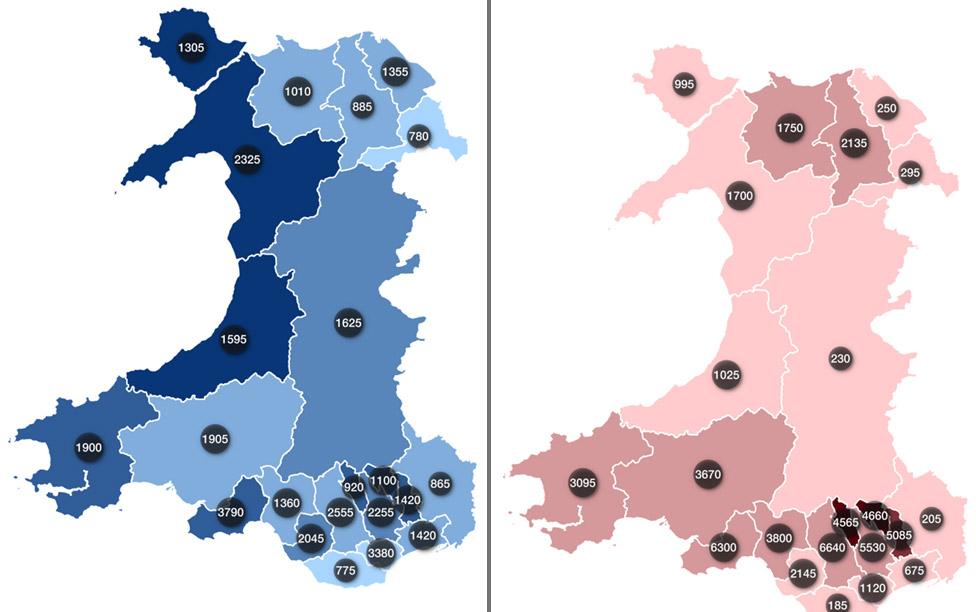
The map on the left shows the number of jobs created as a result of EU funding, the map on the right the numbers helped into learning
The Welsh Government says across Wales nearly 72,700 people were helped into work and 36,970 new jobs were created thanks to EU support.
On top of that, 556,055 people took part in further training.
The map above shows a breakdown for each council area in the numbers of new jobs created and the numbers helped into learning.
Those darker shaded areas show the density of jobs created - or learning places - compared to the population in those areas.
So areas like Ceredigion, Gwynedd, Anglesey in the western half of Wales - and Merthyr, Blaenau Gwent and Torfaen in the valleys - did comparatively well from EU cash in terms of jobs created for the size of their populations.
The money went to a wide range of projects across Wales.
For instance to improve work:
£85m spent on apprenticeships and training
£33m for Jobs growth Wales - which created jobs for 15,000 people aged 16-24.
To help universities:
£40m for Swansea University's new Bay Campus
£9.3m for the Beacon project helping develop the low carbon industry
There was also money to help transport with £79m for dualling of the A465 Heads of the Valleys road and £80m spent improving town centres.
The site will be in the southern corner of Holyhead Deep, separate from shipping lanes
Since 2014, we have been into a new tranche of European funding.
Swedish tidal energy developer Minesto said its £25m Deep Green project off the coast of Anglesey will not be affected by Brexit as its £13m of European funding, granted a year ago, is in place.
The technology involves underwater "kites".
"Our assessment is that the political will and different forms of market support will remain and advance," said Martin Edlund, chief executive.
But there are still projects in the pipeline, according to the Wales European Funding Office, external, which involves tens of millions of pounds in funding between now and 2020.
These include tidal energy projects off the coasts of Anglesey and Pembrokeshire and hi-tech developments involving computers, life sciences and mobile technology led by Cardiff and Swansea universities.
One of them is Morlais Energy, external, which is looking for ERDF money towards developing tidal power off the coast of Anglesey.
The project is half way through the application process at the moment and 12 companies from North America, Europe and the UK have tendered to install arrays in the zone, creating what it calls a "significant number of jobs locally".
Business director Dafydd Gruffydd said: "We are concerned but hopeful that the £18m of ERDF infrastructure funding is forthcoming.
"Holyhead needs it and Anglesey needs it. The developers are also seeking EU support for their own costs.
"However what is out of control is the level of uncertainty and the willingness of developers to invest in the post Brexit UK. They may favour Canada or France."
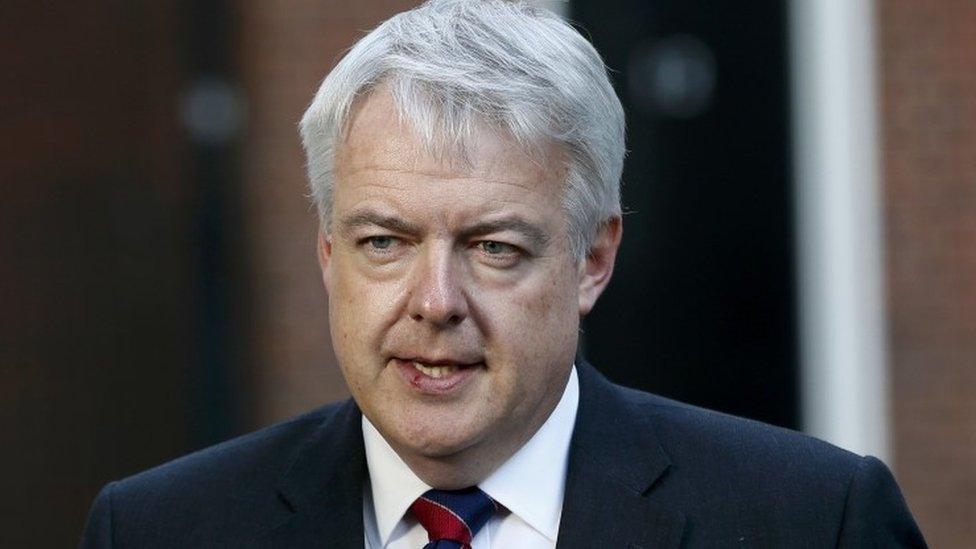
Carwyn Jones said projects were in the balance
There is also a whole tranche of applications under the European Social Fund (£800m over the whole seven years), particularly to help young people in deprived areas get the skills they need to work.
Carwyn Jones said hundreds of vital EU-funded projects right across Wales were in the balance unless a funding guarantee was given.
"Let me be absolutely clear. These projects are designed to improve people's lives, their environment and the infrastructure they rely on every day, and we are proud of what they have already delivered," he said.
"But if that pledge is not honoured by the UK Government, it will have a devastating effect on our budgets, already stretched through years of austerity, and facing billions more in cuts as a result."
Welsh Secretary Alun Cairns, who backed Remain, was stressing that Wales would remain open for business - and for EU funding.
"For now we remain full members of the EU, and there will be no immediate changes to the way people live and work in Wales, or to those EU projects under way," he said.
It is far from clear what will happen to the many millions in structural funds that Wales has become used to.
Because they are match funded by other sources their existence is often not known or fully realised.
However, together they amount to so much money across different aspects of the economy that their reduction or eradication would certainly be felt.
- Published27 June 2016
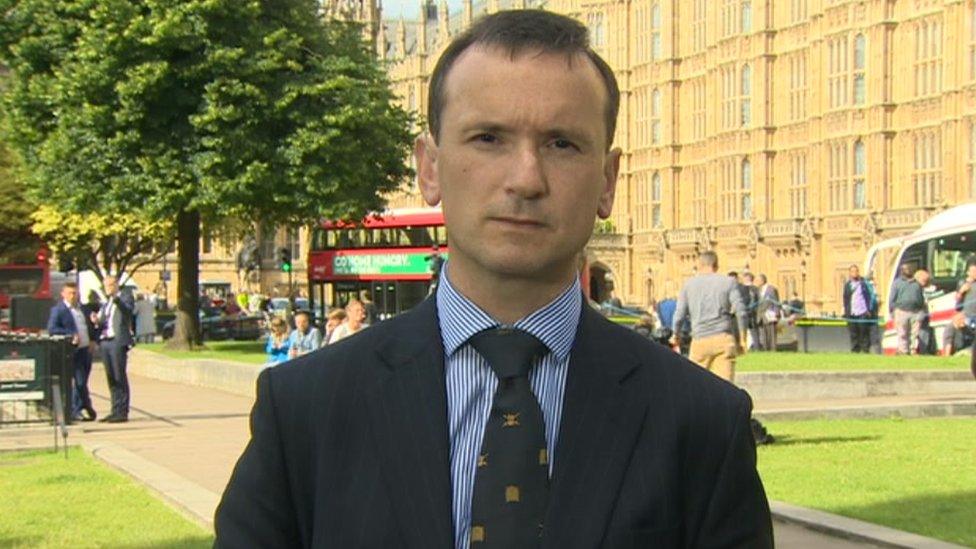
- Published27 June 2016
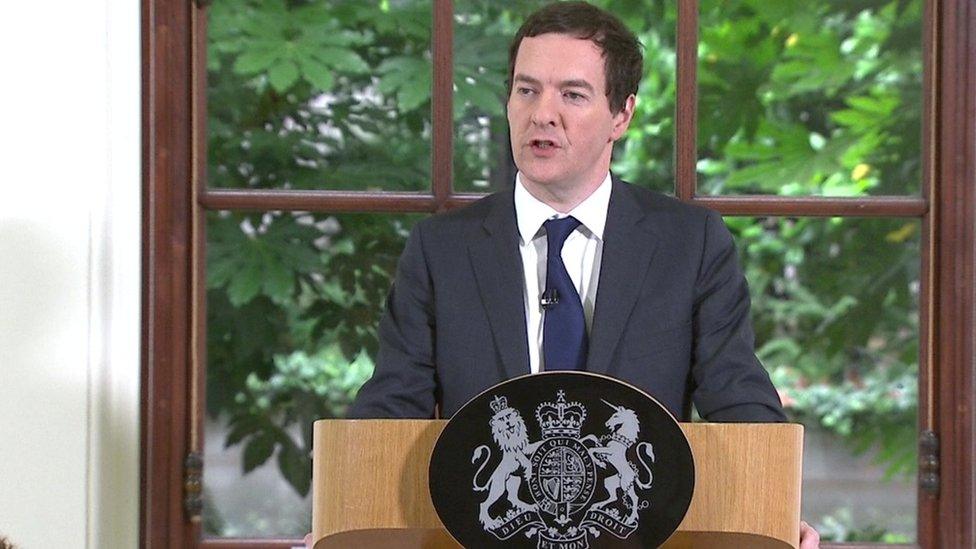
- Published24 June 2016

- Published9 June 2016
